- SolutionsBack to Knowledge CenterManaged Transportation
Why Managed Transportation Execution Matters
As markets tighten, shippers need more than low rates. Learn how managed truckload execution provides stability, compliance and long-term savings.

As the truckload market moves toward gradual recovery, shippers that rely only on transactional brokerage support are likely to face new challenges. During the market downturn, many large brokers reduced operational staff and regional coverage to cut costs.
When demand returns, those reductions often create bottlenecks in tendering, milestone tracking and issue resolution. Late tenders, missed appointments and reactive service recovery quickly add cost and complexity, eroding margin before rate increases even begin.
These challenges highlight a critical truth: rate negotiation may influence freight spend, but execution determines performance. The most resilient supply chains are built on consistent, repeatable execution that scales with demand. For many shippers, the most effective way to achieve that consistency is outsourcing execution to a managed transportation partner.
The Strategic Value of Execution
Strong execution is the outcome of structure, not chance. It depends on connected systems, clear business rules and dedicated teams that manage performance continuously.
A managed transportation model delivers that structure by integrating execution, compliance and process oversight into a unified framework. Instead of relying on multiple brokers or disconnected dispatch processes, shippers gain a single operational model that enforces consistency across every load, lane and carrier relationship.
With this approach, shippers gain:
- Execution continuity: Dedicated resources manage every tender, monitor exceptions and ensure shipments stay on schedule.
- Regulatory and carrier compliance: Active oversight of contracts, carrier qualifications and routing guide adherence reduces risk and administrative burden.
- Change management: Network adjustments happen seamlessly without internal hiring spikes or process disruption.
- Soft savings with hard results: Reduced downtime, optimized routing, seamless modal conversion (LTL > Truckload > Intermodal), fewer claims and measurable service improvement.
By outsourcing execution to a managed transportation partner, companies protect their networks from the fluctuations of market cycles and labor capacity, gaining the discipline and scalability that transactional approaches rarely sustain.
Best Practices: When Managed Execution Creates Strategic Advantage
Implementing managed execution is not a one-size-fits-all decision. The approach delivers the greatest value when applied to specific operational challenges or network complexities that strain internal resources or limit visibility. The following best practices highlight when outsourcing execution can strengthen control, improve performance and drive long-term efficiency.
Unify Complex Networks Under One Execution Model
When freight is managed across multiple origins, divisions or regions, inconsistencies in routing, rates and carrier selection can drive hidden inefficiencies. A unified execution model standardizes planning, enforces compliance and maintains visibility across the network. The result is fewer missed milestones and a more predictable cost structure.
Enforce Compliance in Retail and Regulated Supply Chains
Retail suppliers and regulated industries must meet strict delivery, labeling and documentation standards. A managed execution team enforces routing guides, monitors performance and proactively resolves exceptions before penalties occur. This level of compliance oversight helps protect profit margins and improve customer relationships.
Coordinate Inbound and Outbound Freight for Consolidation
A coordinated approach to inbound and outbound freight allows planners to identify consolidation opportunities that reduce empty miles and improve utilization. Managing both flows under a single execution plan enables smarter scheduling, greater shipment visibility and faster communication when exceptions arise.
Operations planning teams execute shipments according to client-specific business rules, ensure on-time delivery and immediately notify clients of any shipment delays. This coordination improves service reliability while reducing total transportation cost.
Protect High-Value and High-Risk Freight Through Controlled Execution
Heavy, specialized or high-value shipments demand precision. Managed execution provides a structured process for carrier vetting, route planning and documentation to safeguard compliance and reduce claims. This approach ensures secure movement, protects cargo integrity and reinforces accountability across all stakeholders.
Scale Execution Resources to Match Market and Business Shifts
Growth, mergers or seasonal surges can quickly overwhelm internal logistics teams. Managed execution offers a scalable resource model that adjusts with volume, maintaining service continuity without adding internal headcount. This flexibility helps shippers stay agile during demand swings while preserving network stability.
Use Data-Driven Execution to Continuously Improve Performance
Managed execution provides real-time insight into carrier performance, cost per lane and exception trends. By analyzing these metrics, shippers can target inefficiencies, enforce least-cost routing and measure progress over time. This continuous improvement mindset transforms transportation from a reactive expense into a proactive driver of value.
Why This Matters for 2026 and Beyond
The next freight cycle will not be defined by volatility but by gradual tightening that rewards shippers with disciplined execution and penalizes those without it. Shippers relying purely on transactional brokerage will face rising costs, while those adopting managed execution will maintain flexibility, visibility and control.
Execution excellence is becoming the true differentiator between companies that merely move freight and those that build resilient, profitable networks.
Building Resilience Before the Market Shifts
Transportation Insight’s managed execution solution integrates people, process and technology into a single, scalable framework that helps you control cost, maintain compliance and execute with precision through any market cycle.
Want to see how our managed truckload execution model can deliver resilience and results your business needs for 2026? Let’s talk.
About Author:
James Mathews
Vice President, TransportationJames Mathews is a logistics industry veteran with decades of experience in truckload market dynamics. At Transportation Insight, he bridges the gap between carriers and shippers, advocating for both communities to drive strategic freight solutions. By balancing freight contracts and spot market utilization, leveraging data analytics and fostering transparent carrier relationships, he helps shippers optimize truckload costs while ensuring capacity and operational efficiency in a fluctuating market.
More Blogs








On this article:
Sign up for the TI newsletter to get exclusive updates.